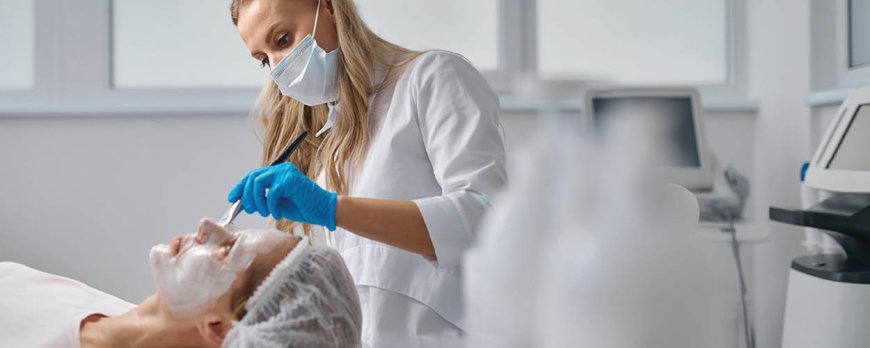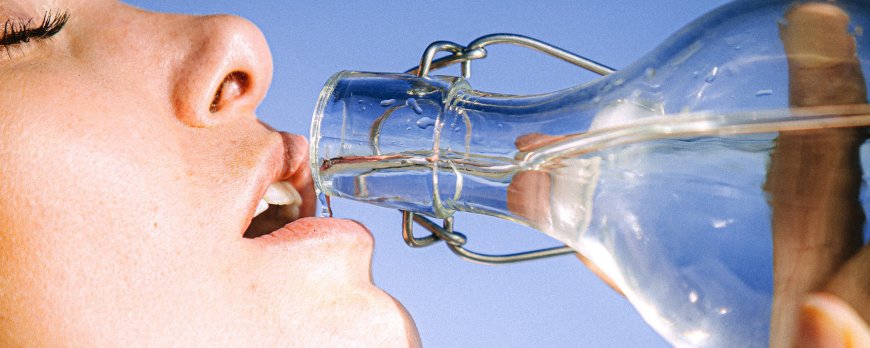What are the side effects of long term antibiotics for acne?
Explore 'What are the side effects of long term antibiotics for acne?' with us. Learn about potential risks behind your acne treatment regimen.

What are the side effects of long term antibiotics for acne?
Long-term use of antibiotics for acne can have several side effects that patients should be aware of. While antibiotics can be effective in treating acne, prolonged use can lead to various adverse reactions. It is important to weigh the benefits against the potential risks and explore alternative treatment options when necessary.
Key Takeaways:
- Prolonged use of antibiotics for acne can cause common side effects such as nausea, vomiting, diarrhea, dizziness, headache, and photosensitivity.
- Tetracyclines, commonly prescribed antibiotics for acne, may have rare but serious side effects including hypersensitivity reactions, intracranial hypertension, and an increased risk of autoimmune conditions.
- Macrolide antibiotics can lead to cardiac conduction abnormalities and hepatotoxicity.
- Clindamycin, a topical antibiotic, is associated with pseudomembranous colitis.
- Long-term antibiotic use can contribute to the development of antibiotic-resistant bacteria.
Dermatologists recommend trying topical treatments, such as benzoyl peroxide, salicylic acid, retinoids, and topical antibiotics, before considering oral antibiotics. In severe cases, alternative therapies like isotretinoin or hormone therapy may be necessary. It is crucial to take a holistic approach to acne treatment by addressing all contributing factors, not solely relying on bacterial eradication, for better long-term outcomes.

Common side effects of long term antibiotics for acne
Nausea, vomiting, diarrhea, dizziness, headache, and photosensitivity are common side effects of long-term antibiotic use for acne. These side effects can vary in severity and may differ depending on the specific antibiotic being used. It's important to note that not everyone will experience these side effects, and some individuals may only have mild symptoms.
In addition to the common side effects, certain types of antibiotics used for acne treatment have specific associated risks. Tetracyclines, which are commonly prescribed, can rarely cause hypersensitivity reactions, intracranial hypertension, and an increased risk of autoimmune diseases such as systemic lupus erythematosus, autoimmune hepatitis, and polyarteritis nodosa.
Another class of antibiotics, macrolides, can potentially lead to cardiac conduction abnormalities and hepatotoxicity. These side effects are uncommon, but individuals taking macrolides should be aware of the potential risks and discuss any concerns with their healthcare provider.
For topical antibiotic treatment, clindamycin is commonly used. However, it is associated with the risk of developing pseudomembranous colitis, a condition that causes severe diarrhea. This side effect is rare but requires immediate medical attention if it occurs.
Summary:
- Nausea, vomiting, diarrhea, dizziness, headache, and photosensitivity are common side effects of long-term antibiotic use for acne.
- Tetracyclines can rarely cause hypersensitivity reactions and increase the risk of autoimmune diseases.
- Macrolides may lead to cardiac conduction abnormalities and hepatotoxicity.
- Clindamycin, a topical antibiotic, carries the risk of pseudomembranous colitis.
Considering the potential side effects, dermatologists generally recommend using topical treatments as the first line of defense against acne, including benzoyl peroxide, salicylic acid, retinoids, and topical antibiotics. These options can be effective at managing acne without the risks associated with long-term antibiotic use.
In severe cases where acne does not respond to topical treatments, dermatologists may consider alternative therapies such as isotretinoin or hormone therapy. These options should be discussed thoroughly with a healthcare professional, as they may have their own associated risks and require regular monitoring.
It is important to approach acne treatment holistically, focusing not only on bacterial growth but also on other factors contributing to the condition. This may include lifestyle changes, dietary adjustments, and stress management techniques. By addressing all factors, individuals can achieve long-term success in managing their acne and minimize the need for prolonged antibiotic use.
Rare Side Effects of Tetracyclines for Acne
While rare, tetracyclines can cause hypersensitivity reactions, intracranial hypertension, and an increased risk of certain autoimmune diseases. These side effects should be taken into consideration when considering long-term antibiotic therapy for acne.
Hypersensitivity reactions: Some individuals may develop an allergic reaction to tetracycline antibiotics, resulting in symptoms such as rash, hives, itching, swelling, or difficulty breathing. If any of these symptoms occur, medical attention should be sought immediately.
Intracranial hypertension: Tetracyclines have been associated with an increased risk of intracranial hypertension, a condition characterized by increased pressure within the skull. Symptoms may include severe headache, blurred vision, nausea, vomiting, or changes in mental status. If any of these symptoms occur, medical evaluation is necessary.
Increased risk of autoimmune diseases: Long-term use of tetracyclines for acne has been linked to an increased risk of certain autoimmune diseases, including systemic lupus erythematosus, autoimmune hepatitis, and polyarteritis nodosa. If any symptoms suggestive of these conditions arise, a healthcare professional should be consulted.
Precautions when using tetracycline antibiotics for acne:
- Inform your healthcare provider about any known allergies or previous adverse reactions to tetracyclines.
- Take the medication as prescribed and follow the recommended dosage instructions.
- Avoid prolonged exposure to sunlight and tanning beds, as tetracyclines can increase sensitivity to sunlight.
- Do not take tetracyclines with dairy products, antacids, or iron supplements, as they can interfere with absorption.
- If experiencing any unusual symptoms or side effects, promptly consult a healthcare professional.
It is important to note that the benefits of tetracycline antibiotics for acne often outweigh the risks, especially when prescribed under medical supervision. However, individuals should be aware of the potential rare side effects and take necessary precautions to minimize any complications.

Side Effects of Macrolides for Acne
Macrolides can cause cardiac conduction abnormalities and hepatotoxicity when used as long-term antibiotics for acne. These side effects, although rare, should be considered when considering this treatment option. Cardiac conduction abnormalities can manifest as irregular heart rhythms, which may lead to palpitations, dizziness, or even fainting. Prior to starting macrolide therapy, it is important for individuals to undergo a thorough cardiac evaluation to identify any pre-existing conditions that may increase the risk of these abnormalities.
Hepatotoxicity, or liver damage, is another potential side effect of long-term macrolide use. Symptoms of hepatotoxicity may include jaundice, abdominal pain, nausea, and fatigue. Regular liver function tests are recommended during treatment to monitor for any signs of liver dysfunction. If any symptoms or abnormal test results are observed, the medication may need to be discontinued.
Precautions and Monitoring
- Prior to initiating macrolide treatment for acne, a cardiac evaluation should be conducted to assess the individual's risk of cardiac conduction abnormalities.
- Regular liver function tests should be performed to monitor for hepatotoxicity, especially in individuals with pre-existing liver conditions.
- If any cardiac or liver-related symptoms arise during treatment, immediate medical attention should be sought.
- Macrolides should be used cautiously in individuals with a history of heart or liver disease.
- Consultation with a dermatologist is recommended to determine the most appropriate treatment plan for acne, considering individual factors and potential risks.
While macrolides have proven to be effective in treating acne, it is essential to carefully weigh the risks and benefits before initiating long-term therapy. Close monitoring and adherence to precautionary measures can help minimize the occurrence of these potential side effects. Always consult with a healthcare professional to determine the most suitable treatment approach for your specific situation.
Clindamycin and its associated side effects
Clindamycin use can lead to pseudomembranous colitis, a potentially severe gastrointestinal condition. This adverse effect occurs when the medication disrupts the balance of bacteria in the gut, allowing an overgrowth of Clostridium difficile, a bacteria known to cause colitis. Symptoms of pseudomembranous colitis include severe abdominal pain, diarrhea (often watery and frequent), fever, and sometimes even blood in the stool. If left untreated, this condition can lead to serious complications and require hospitalization.
Another less common side effect of clindamycin is an allergic skin reaction. Some individuals may develop a rash, hives, or experience itching and swelling after using this medication. It is important to discontinue clindamycin and consult a healthcare professional if any signs of an allergic reaction occur.
Precautions and recommendations:
- It is crucial to take clindamycin exactly as prescribed by your healthcare provider and complete the full course of treatment to minimize the risk of antibiotic resistance.
- Those with a history of gastrointestinal disorders, especially colitis, should exercise caution when using clindamycin and promptly report any changes in bowel habits or symptoms of colitis to their healthcare provider.
- If an allergic reaction or severe side effects occur, it is essential to seek medical attention immediately.
- Clindamycin should not be used in combination with certain medications, including erythromycin, due to the potential for adverse interactions.
Given the potential risks and side effects associated with clindamycin, dermatologists often reserve its use for cases where other topical treatments have proven ineffective. They may recommend alternative treatments, such as benzoyl peroxide, salicylic acid, retinoids, and other topical antibiotics, before considering the use of clindamycin.
It is important to remember that each individual’s response to medication may vary. If you are prescribed clindamycin for acne, it is crucial to closely monitor your symptoms and consult your healthcare provider if you experience any unusual or concerning side effects.
Antibiotic Resistance and Long-Term Acne Treatment
Prolonged antibiotic treatment for acne can contribute to the development of antibiotic resistance in bacteria. This occurs when bacteria that are exposed to antibiotics for an extended period of time adapt and become resistant to the medication's effects. As a result, the same antibiotics that were once effective in treating acne may no longer be able to eliminate the bacteria causing the condition.
To address this concern, dermatologists emphasize the importance of using antibiotics judiciously and for the shortest duration possible. They recommend exploring alternative treatment options, such as topical treatments and other medications, before considering long-term antibiotic therapy.
Risks of Long-Term Antibiotic Therapy for Acne:
- Development of antibiotic-resistant bacteria
- Reduced effectiveness of antibiotics over time
- Potential for adverse reactions and side effects
By reducing the reliance on antibiotics, dermatologists aim to minimize the risk of antibiotic resistance and preserve the effectiveness of these medications for future use. When antibiotics are necessary, they are often prescribed alongside other treatments to optimize results and minimize the duration of antibiotic therapy.
It's important for individuals undergoing long-term acne treatment to consult with a dermatologist, who can provide personalized guidance on the most appropriate treatment approach for their specific condition. By taking a holistic approach to acne treatment and considering factors such as skincare routine, diet, and lifestyle modifications, individuals can improve their chances of achieving long-term success.
Alternative treatments for acne
Dermatologists recommend trying topical treatments and other non-antibiotic options before resorting to long-term antibiotic use for acne. These alternative treatments can effectively manage acne while minimizing the risk of side effects associated with antibiotics. Here are some options to consider:
- Topical retinoids: These medications, such as tretinoin and adapalene, help unclog pores, reduce inflammation, and promote cell turnover. They are available in creams, gels, or lotions and can be used alone or in combination with other topical treatments.
- Benzoyl peroxide: This over-the-counter medication kills bacteria, reduces inflammation, and helps prevent clogged pores. It is available in various strengths and formulations, including creams, gels, cleansers, and spot treatments.
- Salicylic acid: Found in many acne products, salicylic acid helps exfoliate the skin, unclog pores, and reduce inflammation. It is available in various strengths and can be found in cleansers, toners, and spot treatments.
If these topical treatments do not provide sufficient improvement, your dermatologist may consider other non-antibiotic options:
- Isotretinoin: This oral medication, commonly known as Accutane, is reserved for severe cases of acne that do not respond to other treatments. It reduces oil production, prevents acne formation, and has long-lasting effects.
- Hormone therapy: For women with hormonal acne, hormonal contraceptives (birth control pills) or anti-androgen medications may be prescribed. These treatments help regulate hormones, reduce oil production, and control acne breakouts.
It's important to remember that everyone's acne is unique, and what works for one person may not work for another. Consulting with a dermatologist is crucial to determine the most appropriate treatment plan for your individual needs. By considering alternative treatments and addressing all factors contributing to acne, you can effectively manage your condition without relying solely on long-term antibiotic use.

Severe Acne Cases and Alternative Therapies
In severe cases of acne, alternative therapies like isotretinoin or hormone therapy may be necessary for effective treatment. These treatment options are reserved for individuals who have not responded to other treatments or have severe scarring due to acne. Here are some alternative therapies that dermatologists may consider:
- Isotretinoin (Accutane): This oral medication is highly effective in treating severe cystic acne. It works by reducing the production of oil in the skin and helping the skin renew itself more quickly. Isotretinoin can have significant side effects, including dryness, sensitivity to sunlight, and potential birth defects, so it requires careful monitoring by a healthcare professional.
- Hormone Therapy: For individuals with hormonal imbalances contributing to acne, hormone therapy may be recommended. This treatment can involve the use of birth control pills containing estrogen and progesterone, which can help regulate hormone levels and reduce acne flare-ups. Other hormonal medications, such as spironolactone, may also be prescribed for certain cases of acne.
- Chemical Peels: A chemical peel involves the application of a chemical solution to the skin, which causes it to exfoliate and eventually peel off. This process helps to improve the appearance of acne scars and reduce the frequency and severity of acne breakouts. Chemical peels can be done at varying depths, depending on the individual's needs and the severity of their acne.
- Laser Therapy: Laser therapy is a non-invasive treatment option that uses light energy to target and destroy the bacteria that contribute to acne. It can also help reduce inflammation and stimulate collagen production, which can improve the appearance of acne scars. Laser therapy can be effective for severe acne cases, but multiple sessions may be required for optimal results.
It's important to note that these alternative therapies may have their own set of side effects and considerations. Therefore, it's crucial to consult with a dermatologist or healthcare professional who can assess your individual case and recommend the most appropriate treatment options.
While alternative therapies can be effective for severe acne cases, it's important to address all factors contributing to acne, not just bacterial growth, for successful long-term treatment. Maintaining a consistent skincare routine, adopting a healthy lifestyle, and managing stress levels can also play a significant role in managing and preventing acne breakouts.
Taking a Holistic Approach to Acne Treatment
Effective long-term acne treatment requires a holistic approach that considers various factors beyond bacterial growth. While antibiotics can be effective in reducing acne-causing bacteria, their prolonged use can lead to a range of side effects. It is important to explore alternative treatments and address the underlying causes of acne to achieve lasting results.
Consider Topical Treatments
Before resorting to oral antibiotics, dermatologists recommend trying topical treatments that target acne directly. Benzoyl peroxide, salicylic acid, retinoids, and topical antibiotics can help reduce inflammation, unclog pores, and regulate oil production. These treatments can be used in combination or as standalone options, depending on the severity and type of acne.
By applying these topical treatments directly to the affected areas, it is possible to achieve significant improvements without the systemic side effects associated with oral antibiotics. However, it is essential to follow the prescribed usage instructions and consult with a healthcare professional to ensure their appropriate and safe use.
Explore Alternative Therapies for Severe Cases
In some severe cases of acne, alternative therapies may be necessary. Isotretinoin, a powerful oral medication, is often reserved for persistent and severe acne that does not respond to other treatments. It works by reducing sebum production, shrinking oil glands, and reducing acne-causing bacteria.
For individuals whose acne is influenced by hormones, hormone therapy may be a suitable option. This approach typically involves the use of oral contraceptives or anti-androgen medications to regulate hormonal imbalances, which can help improve acne symptoms.
Addressing All Contributing Factors
It is vital to understand that acne is not solely caused by bacterial growth. Other factors, including genetics, hormonal fluctuations, stress, diet, and skincare habits, can also contribute to acne development. Therefore, a comprehensive approach to acne treatment should involve addressing these underlying factors.
Implementing lifestyle changes, such as managing stress levels, adopting a balanced diet, and establishing a consistent skincare routine, can complement medical treatments and improve overall skin health. Consulting with a dermatologist or skincare professional can provide personalized recommendations that consider these various factors and help tailor an effective treatment plan.
By taking a holistic approach to acne treatment, individuals can minimize the reliance on long-term antibiotics and reduce the risks associated with their prolonged use. Understanding the benefits of topical treatments, exploring alternative therapies for severe cases, and addressing contributing factors can empower individuals to achieve clearer, healthier skin in the long term.
Conclusion
Long-term use of antibiotics for acne can have several side effects, and it's essential to consider alternative treatments and a holistic approach to achieve successful long-term management. Common side effects of long-term antibiotic use for acne include nausea, vomiting, diarrhea, dizziness, headache, and photosensitivity. Tetracyclines, a commonly prescribed class of antibiotics, may lead to rare but serious hypersensitivity reactions, intracranial hypertension, and an increased risk of autoimmune diseases. Macrolides can cause cardiac conduction abnormalities and hepatotoxicity, while clindamycin, a topical antibiotic, is associated with pseudomembranous colitis.
It's important to note that long-term use of antibiotics can also contribute to the development of antibiotic-resistant bacteria, which can further complicate acne treatment. Dermatologists recommend starting with topical treatments such as benzoyl peroxide, salicylic acid, retinoids, and topical antibiotics before considering oral antibiotics. These alternative treatments can help reduce the risk of side effects associated with long-term antibiotic use.
In severe cases of acne, dermatologists may prescribe isotretinoin or hormone therapy. Isotretinoin is a powerful medication that can effectively treat severe acne, but it comes with its own set of side effects and requires close monitoring. Hormone therapy can be beneficial for individuals with acne caused by hormonal imbalances.
However, it's important to take a holistic approach to acne treatment and consider all factors contributing to the condition, not just bacterial growth. Lifestyle modifications, such as maintaining a healthy diet, managing stress, and practicing good skincare habits, can also play a significant role in managing acne. Consulting with a dermatologist is crucial to develop an individualized treatment plan that addresses the specific needs and concerns of each person with acne.

FAQ
What are the side effects of long-term antibiotics for acne?
Long-term use of antibiotics for acne can lead to various side effects, including nausea, vomiting, diarrhea, dizziness, headache, and photosensitivity. Rare side effects may include hypersensitivity reactions, intracranial hypertension, and an increased risk of autoimmune diseases.
What are the common side effects of long-term antibiotics for acne?
Common side effects of long-term antibiotic use for acne include nausea, vomiting, diarrhea, dizziness, headache, and increased sensitivity to sunlight.
What are the rare side effects of tetracyclines for acne?
Rare side effects associated with tetracycline antibiotics for acne treatment include hypersensitivity reactions, intracranial hypertension, and an increased risk of autoimmune diseases like systemic lupus erythematosus, autoimmune hepatitis, and polyarteritis nodosa.
What are the side effects of macrolides for acne?
Macrolide antibiotics used for long-term acne treatment can cause cardiac conduction abnormalities and hepatotoxicity, which can affect the functioning of the heart and liver.
What are the side effects of clindamycin for acne?
Clindamycin, a topical antibiotic commonly used for acne, is associated with pseudomembranous colitis, a severe infection that affects the colon.
Can long-term antibiotic use for acne contribute to antibiotic resistance?
Yes, long-term antibiotic use can contribute to the development of antibiotic-resistant bacteria, which can make future infections harder to treat.
What are some alternative treatments for acne?
Dermatologists recommend using topical treatments such as benzoyl peroxide, salicylic acid, retinoids, and topical antibiotics before resorting to oral antibiotics for acne. Other medications and therapies may be considered for severe cases.
What treatment options are available for severe acne cases?
Severe cases of acne may require more aggressive treatment options, such as isotretinoin (commonly known as Accutane) or hormone therapy to regulate hormone levels.
Why is it important to address all factors contributing to acne?
To effectively treat acne in the long term, it is essential to address all factors contributing to acne, not just bacterial growth. This may involve lifestyle changes, skincare routines, and addressing hormonal imbalances.
What is the main takeaway regarding long-term antibiotic use for acne?
While antibiotics can be an effective treatment option for acne, long-term use can lead to various side effects and contribute to antibiotic resistance. It is important to explore alternative treatments, consider the severity of the condition, and take a holistic approach to acne treatment.































































































































